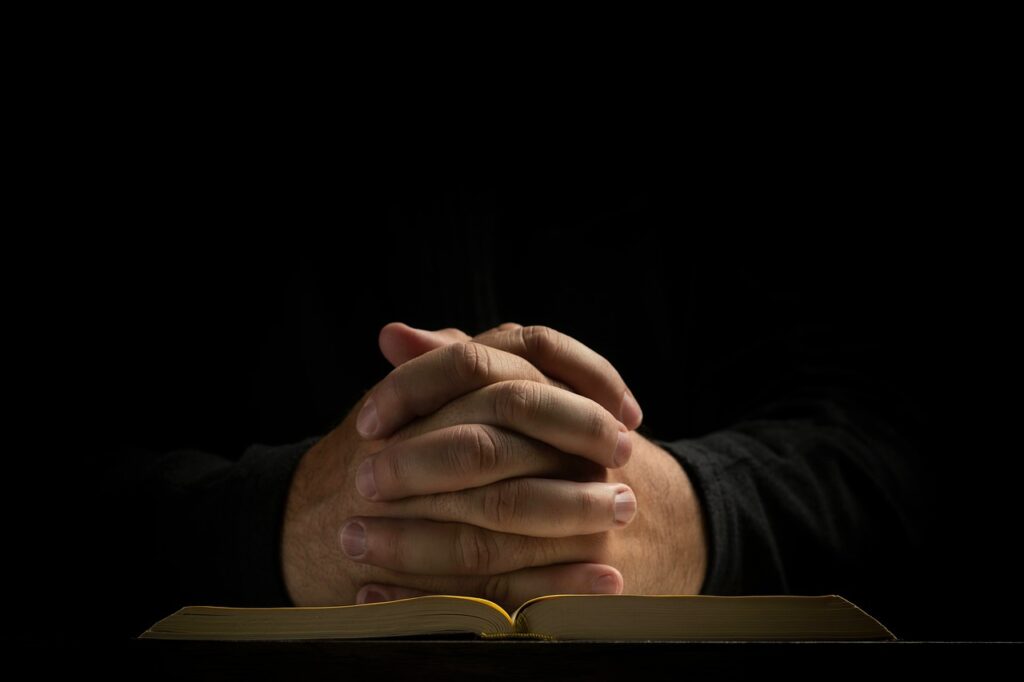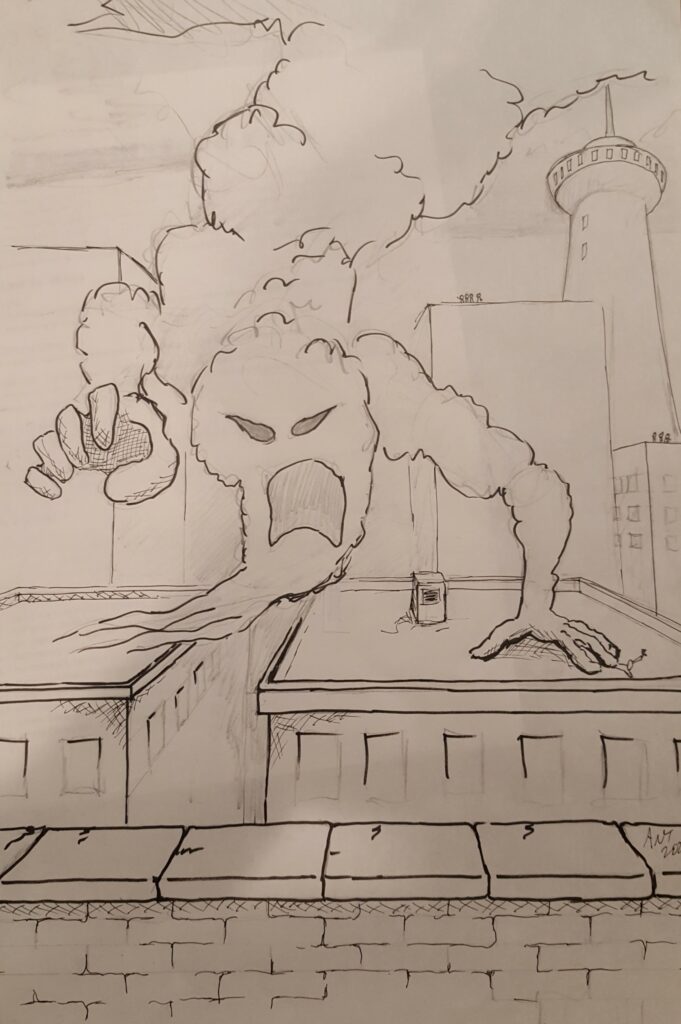Creating gods for your stories is fantastic fun and may be the most epic part of “world building”. First of all, it widens the scope of your worldview; in other words, your god-scheme delivers you the “big picture”. Secondly, it provides the underlying energy of the science-to-magic continuum that ebbs and flows through everything in your world from physics to life and death. Thirdly, it deepens your mortal characters’ existence by imbuing their lives with mythology and divine power. Beyond all that, the bonus is that it makes you feel powerful; after all, you essentially become the “god” of your gods.
For this post, we brainstormed “gods” from a whole bunch of angles. Have a look at what we have here and we sure hope you find some of the ideas below helpful and fun. Enjoy!
Creating Gods – A Pantheon of Gods or One God?
We brainstormed the pros and cons of each of these fictional, narrative approaches and came up with a few tips for your consideration in making this decision for your story.
Pantheon of Gods
With a “pantheon” of gods, the universe is governed by more than one supernatural, divine being. This belief is referred to as polytheism. For narrative purposes, having a pantheon of gods lets you assign individual deities to specific groups, behaviours, attitudes, or whatever. For example you could have: Tyrranus, God of Terror; Imbibus, God of Wine; or — more menacingly — Reverboros, God of Flatulence. When you take the polytheistic approach, the possibilities are endless for creating gods as you structure your pantheon.
The pantheon approach also lets you create dynamics between the gods; in other words, a great, godly soap opera takes place in the divine world as petulant gods fight each other for power and control. Your mortal characters can get caught up in these miraculous machinations in ways that up the stakes and balance their lives on a knife edge.
The problem with this approach, however, may be its complexity. Sometimes, a story can get lost and your world can get confusing by having too many twists and turns in the underlying supernatural power of your universe. You can lose mortal characters in the maelstrom of a convoluted divine structure. So, the biggest caution is to keep your pantheon simple at first. Figure out the top few gods in the hierarchy and then only introduce those that are necessary to support the playing out of your main characters’ lives.
One God
This approach assumes that there is only one supreme entity that governs the structure of the universe. This type of belief is referred to as “monotheism.” The “one-god world” plods along under the often aloof observance of a divinity that may or may not be defined. The biggest advantage of this approach is that your world is tethered to a singular purpose, power, or direction that is understood to be generally outside the manipulation of your characters. In this way, the one god is so powerfully epic giving significant “weight” to your world and the lives of your characters. This all-powerful, supernatural force may or may not intervene in, demand of, or judge the lives of mortals. That’s all up to you as the world builder.
Singular gods are subject to all kinds of expression of their substance. They may be similar in appearance to the mortals that worship them. Or they may exist as bodiless entities, described only as a power, energy, or force. They sometimes are ascribed emotion or attitude as in “benevolent” or “wrathful”. Often they will be noticed by mortals in symbolic fashion or the sense that the god is ubiquitous in all things.
For narrative purposes, the caution would be to introduce your one god through nuance and mystery. The power of a singular god rests in what they “may do” or what “may happen.” Revealing too much mortal knowledge of your god in your world reduces their enigmatic strength, so it’s advisable to present a slow roll out of their form and power. A couple legends, myths, or miracles that folks speak of should be enough for a start, and you could throw in a ritual or two observed by believers.
Other possibilities?
It is possible to create a world absent of a god or gods. This type of belief is generally referred to as “atheism.” You can explain a world based on the science as understood at the time. Things may simply happen because they happen. And you may refer to energies beyond human understanding in your world objectively as “energies”. In this way, we look at things such as gravity, calories, and DNA. However, even in a scientific world folks may speak of the “miracle of life.” This begs the question to what, exactly, are they ascribing the miracle? All this is to say that people generally want to believe in something, they want to tell a story that explains things, and I’d suggest the same might be true in your narrative world whether or not gods actually exist.
In this same vein, competing religious or spiritual views impart tension in the world. The more committed people are to their beliefs, the greater the tension. What if one of your characters is a monotheist, and the other is a polytheist? Do the gods actually get involved in mortals’ lives in your story or gaming world? If they don’t, competing religious claims can run rampant with followers asserting all kinds of evidence to support their espoused beliefs. If gods do get involved in mortals’ lives, you’ve got some real planning to do on the back end regarding the various religious claims. That could take some time to sort out but would also be lots of fun. 🙂

Creating Gods – Writing Prompts
We love writing prompts, so here are a few you could try that involve the supernatural. Some folks use these as brief exercises to bust out of writers block. Others may find a kernel to pop into a full-blown story. Have fun!
- A god offers your character a glass of wine or a drink of another sort. What happens when your character drinks it?
- Your character loses a very important holy symbol or relic. Their god is not happy and demands something in recompense. What is it and can the character atone?
- You often ask rhetorical questions. One day, a god actually answers you. What do you do?
- The gods set up a competition. The winner will be granted a title as a Hero of the Realm and will gain associated powers. Will you take part in the games? What happens to the losers?
- A god is going senile and getting confused. What used to be a peaceful existence is now an intemperate chaotic mess for mortals like your character. Can anything be done to set things right?
- Your god has decided to hand out miracles. You have a chance to ask for one thing, but you know that your god has already denied others’ requests deemed too greedy. What will you ask for?
Creating Gods- Attributes and Attitudes
When it comes to gods, they can be as fickle as humans or as immutable as stone. Some gods will detach themselves from concerns of mortals while others may meddle amusedly in human affairs. Gods may take a wide variety of forms and have a great range of powers. Check out these menus of ideas for shaping gods for your fictional world.

Forms
Your gods may take any form. For narrative purposes, try to match your form to the emotion and demeanour of your god. This will allow for more accurate dominant impression. Some gods may switch from form to form depending on the situation. Then again, you can always go for irony; for example, the meek god appearing as a roaring lion only to apologize moments later.
- bodiless, formless entity of energy, abstract, inconceivable, incomprehensible,
- gaseous, misty, ephemeral, fleeting,
- appears as a beautiful nymph, old hag, kindly old man, beggar, merchant, wounded animal,
- a single-celled organism, bacteria colony, a virus,
- androgenous, asexual,
- gigantic, huge, towering, powerful, planet-sized
- beautiful, sublime, attractive, vision of “perfection”, alluring, dazzling,
- mimic, doppelganger, shapeshifter,
- takes the form of an object: statue, sceptre, ruby, ring, tome, relic, artifact, a giant rock (monolith), tablet,
- animal form: owl, hawk, mouse, lion, elephant, dragon, dragonfly,
- plant form: oak tree, orchid, Venus flytrap, vine, field of grass,
- monstrous beast, fearsome creature, alien form,
- make your god really scary: poltergeist, wight, wraith, undead, skeletal form,
- consider the way your gods may dress: robe or cape, in leaves, styled, unkempt or disheveled, pampered, bejewelled, goggles, hat, nude,
- also think of what they may carry with them: a mighty weapon, a staff, a book, scales of justice, pipe and tobacco, cellphone, fishing gear, bones, runestones,
- floating, flickering, dancing, swirling, undulating, gesticulating, gyrating,
Demeanour and Attitude
In a pantheon of gods, you will have a wide range of god-characters to assign various attributes. If your world has one god, you can give them a complexity of emotions as well if you like, or choose one strong demeanour that makes them a steady presence in your narrative world. Either could work depending on how your story is to roll out: a petulant god prone to outbursts could wreak havoc on a world, or an unyielding god can force mortal characters into making some tough decisions. It all sounds like wicked fun, doesn’t it?
- fierce, mighty, powerful, menacing,
- overbearing, relentless, endless,
- constant, reliable, steady, stoic
- fleeting, elusive, evasive,
- aloof, careless, impartial,
- judgemental, just,
- think of the narrative savagery if your god were wicked, cruel, violent, angry, wrathful, vengeful, spiteful, jealous, barbaric, depraved
- soft, gentle, kind, caring, giving,
- the trickster god is fun as they mess with mortals and other gods for their own amusement or to teach lessons in ironic fashion
- fickle, petulant, restless, temperamental
- seductive, entrancing, beguiling,
- meek, gentle, quiet, observant, calm, peaceful, pleasant, relaxed
- many gods are wise, sagely, or intelligent; what happens if mortals don’t heed their advice?
- a god could be a gambler who enjoys games, getting followers to compete in all sorts of shenanigans
- you could always give your gods some obsessions or fears that could be behind their antics
- for even more ideas on emotional descriptors, check out our EMOTIONAL TRAITS page here
The Stuff of Gods – Artifacts, Rituals, Temples, and Symbols

When you’re creating gods for your story, you have to consider the religious practices that go along with your gods’ belief systems. So we brainstormed a bunch of things that we think may help you flesh out your ideas. Once your god-scheme is in place, you get to focus on the mortal side of it all. In other words, what do the people on the ground do worship, pray to, and appease their gods?
- Let’s start with a place of worship. Think about where mortals will show their devotion to a god. Possible ideas include:
- temple, altar, dais, sanctuary, retreat, shrine, sanctum,
- building, tower, wall, fort, pyramid, arch, bridge,
- tent, canopy, pagoda,
- firepit, furnace, forge, fireplace, stove
- pool, basin, fountain
- lectern, stand, altar,
- platform, ledge, balcony, mezzanine
- meadow, copse, clifftop, river, waterfall, dune, oasis, beach, island, volcano
- Secondly, let’s consider symbols that may be important to your gods:
- celestial objects: stars, planets, moons, shooting stars, comets, the sun,
- nature: leaves, thorns, water, a flower, stone, an animal,
- numbers, letters, script, writing, characters,
- designs, patterns, shapes, geometry, order
- chaos, randomness, disorder,
- Thirdly, think about some items that could serve as artifacts or holy relics in your world, such as:
- wand, staff, rod, sceptre,
- jewelry: signet ring, brooch, pendant, talisman, amulet,
- bones, teeth, hair
- money, coins,
- wine, food, carrots, beer, tincture, tisane, tea, meat, potion, concoction
- art: woodcut, painting, engraving, sculpture, statuette
- book, tablet, tome, scroll, card, note
- machine, contraption, invention, device,
- And last, but not least, envisage some ritual or rite that followers might observe in order to appease their god(s):
- prayer, chant, saying, song, incantation, recitation
- gesture, patterned movement, action,
- genuflection, bow, bend, obeisance,
- homage, deferential movement,
- dance, song, rhythm, drum beat, footwork,
- rites of birth, marriage, death, funeral, coming-of-age, assignment of name,
- obligation, duty, quest, journey, search,
- signal, handshake, shared gesture, offer and response,
- feast, drink, food preparation, food restriction,
- sacrifice, atonement, offering, oblation, gift,
- applause, collective gesture, crowd action,
- burning, sinking, digging or burying, constructing
- festival, celebration, week-long series of rituals,
A final word on Creating Gods
We certainly hope you had some fun with this post just as we did in brainstorming for it. Creating gods for fictional narratives or roleplaying games is truly an exercise in entertaining oneself and you may find the journey to be quite philosophical as well.
We have purposely avoided making any reference to Earthly religions, the omission being in respect of the diverse beliefs of folks on this planet. However, you can certainly do some research if you wanted for your own purposes, and you’ll find an endless amount of content if you go down that rabbit hole.
This page and this site are dedicated to fiction where the possibilities in creating gods are boundless. Gods can be characters themselves or can exist in the background of your story, lending it a timeless weight or an ominous undertone with an impending sense of finality. Gods can be used as catalysts for adventures by instilling motivation in characters intrinsically or expressly through a demanded quest of sorts. Shape your gods to suit your narrative needs.
As always, thanks for visiting cre8opedia.
